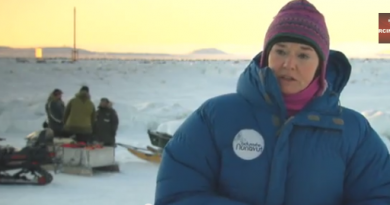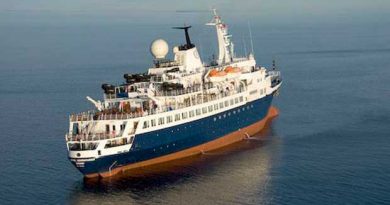Canada, the HFO ban & great power competition in the North – Arctic news roundup 2020 with Mathieu Landriault
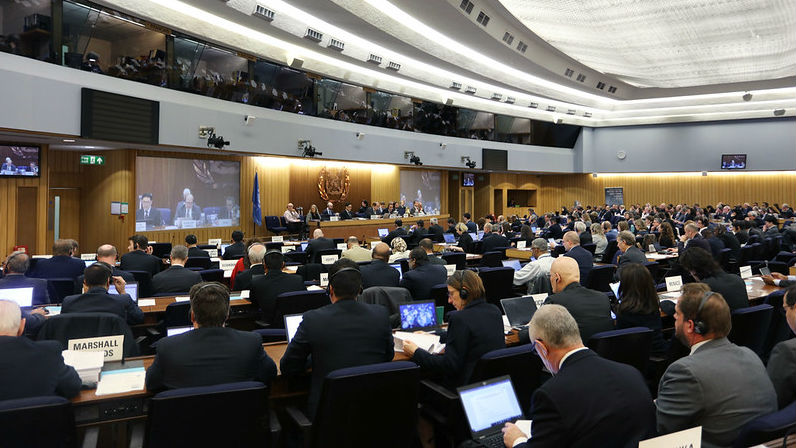
The end of the year is often a time to take stock and here at Eye on the Arctic, we’re no different.
In our 2020 edition of our annual Arctic news roundup, we’ve checked in with Arctic experts from around the world who’ve contributed their blogs to Eye on the Arctic/Regard sur l’Arctique.
In the third installment of this year’s series, we speak to Mathieu Landriault, director of the Observatoire de la politique et la sécurité de l’Arctique – OPSA (Arctic Policy and Security Observatory) at the University of Quebec in Montreal, and the editor of OPSA’s L’année arctique 2020 – Revue annuelle (Arctic Year 2020 – Annual Review).
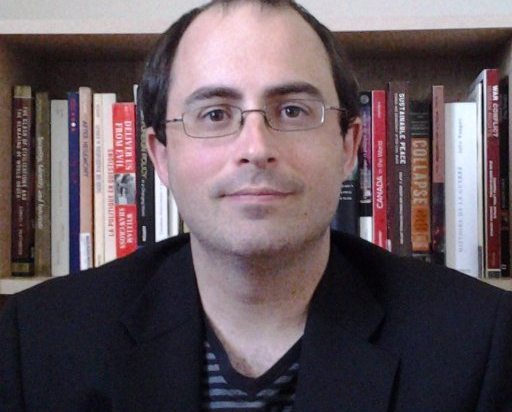
- Eye on the Arctic: COVID-19 and the pandemic dominated headlines, Arctic and otherwise, around the world in 2020. What impacts will the pandemic have on the Arctic in the months to come?
Mathieu Landriault: One thing that may turn out to be a positive impact, is how the pandemic highlighted the importance of high-speed internet in the North for all things, from education, to the economy in general, and to health. One of the structural weaknesses in the Canadian Arctic is how internet connectivity is either slow or completely absent. Now, is it going to change overnight? I don’t think so. But I think it’s already a first step to acknowledge how central it is, and to think of internet connectivity in terms of not just a service, but an infrastructure we must build. In Quebec’s Plan Nord, we saw that internet connectivity is a priority for Nunavik but it’s going to take time, because that kind of infrastructure requires big investments. But I think it’s a positive development that priority is being put on it. We need that kind of infrastructure that the Canadian Arctic can rely on.
2. The administration of U.S. President Donald Trump was a wildcard in terms of Arctic politics over the last four years. What will you be watching for from the Biden administration in terms of the Arctic?
It will be interesting to see how the new administration perceives the Arctic in the order of its priorities. They’ll have a lot on their plate in terms of restoring American leadership around the world and American foreign policy in general. Many allies are not looking at the U.S. in the same way.
The Trump administration was extremely skillful at framing the Arctic in terms of great power competition and that had huge impact on the type of debates we’ve had in media and academic circles. I’ll be interested in how the Biden administration will frame the U.S relationship with China and Russia in the Arctic region. Because prior to 2016, the Arctic was seen as an area of pragmatic, cautious cooperation, where Russia could be engaged with on certain issues, even if we didn’t agree with them on everything, without bringing out the scarecrows of competition and confrontation at every turn.
I’ll also be watching how the Biden administration approaches sustainable development. It’s often presented as something that’s uniform in Arctic politics, but it’s also a concept that’s extremely vague. Russia is for sustainable development, but they have a specific definition of what that means, while Canada has another definition, and then Scandinavian countries have another. It will be interesting to see where the U.S. administration will fit into all of this.
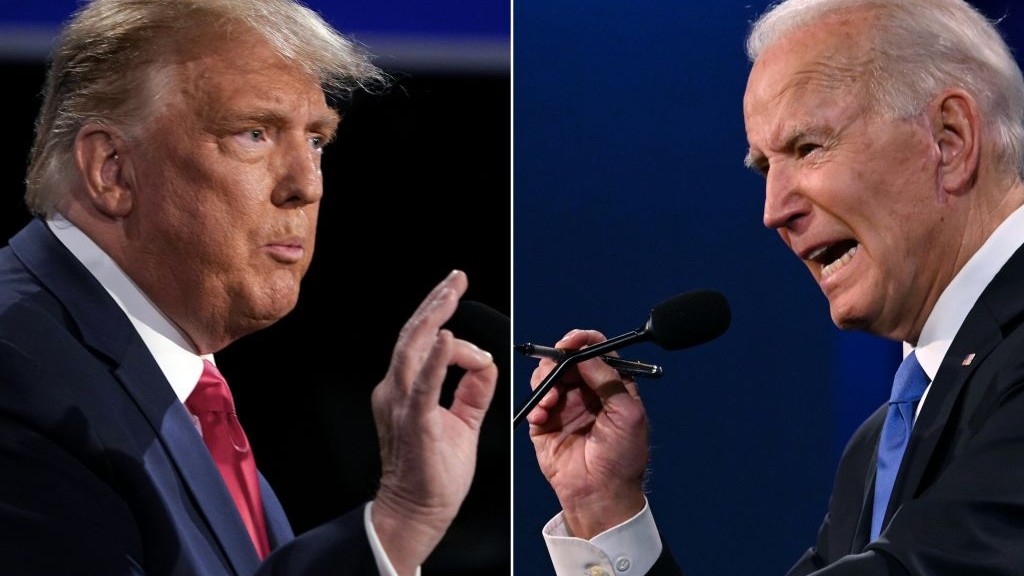
3. What two Arctic stories or issues do you feel got pushed into the background in 2020 and shouldn’t have been?
The heavy fuel oil ban that was decided at the IMO. They agreed on a draft ban in February and then the pandemic happened. The draft ban flew completely under the radar and then it was accepted in November. In my mind that was a great example of how Arctic states can be dominant players, even in global forums, because they were able to carve exemptions for themselves to the ban. We talk a lot about how countries like China and non-Arctic states are getting into the game, but Arctic states are very much still who’s driving it.
The other thing about that ban that was fascinating, and that should have been highlighted more, is how it provides us with a snapshot of how different Arctic states see sustainable development. The HFO ban was supported by the Scandinavian states. Canada took a much looser approach to this and supported the exemptions that go until 2029 and was quite OK with this. It struck me that when you heard Inuit groups talk about the ban, they talked about the need for much stricter measures. Canada’s Arctic policy framework is all about co-development and listening to Northerners but then when it came to the ban, they didn’t really listen or go in the direction that Inuit organizations were for.
4. What Arctic stories or issues will you be closely following in 2021?
The recent announcement about enshrining UNDRIP in Canada will be a significant ongoing development to follow. How would it translate into the Canadian Arctic? How would the Canadian government work with and cooperate with Inuit administrations and groups? I think that’s a key milestone to watch for.
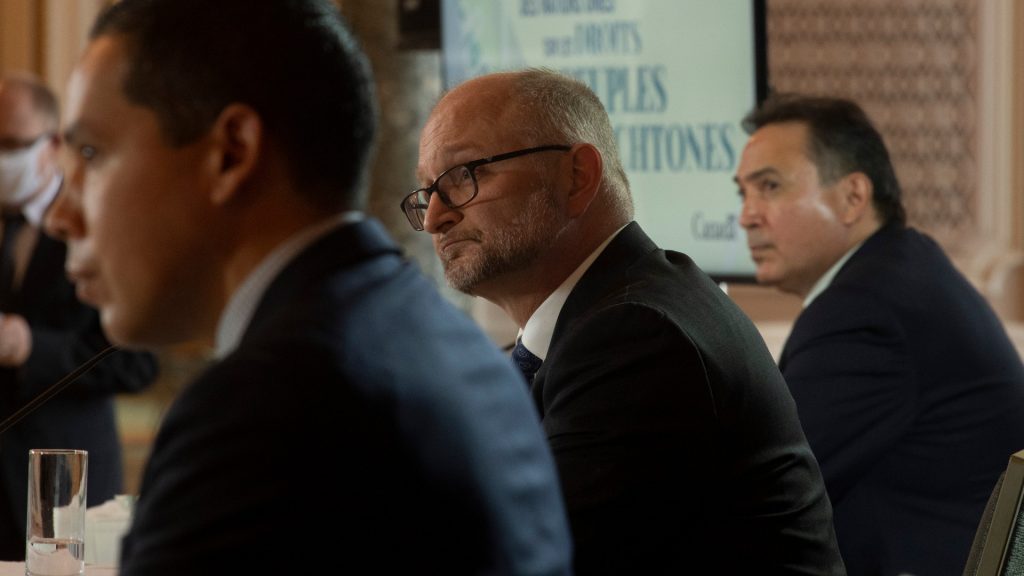
Also, in Quebec, the evolution of the new version of Plan Nord will be interesting to watch. For many years, Plan Nord was just a general outline mostly tied to the provincial Liberals. Now it seems the CAQ government in Quebec is kind of taking ownership of it and making it more oriented towards deliverables and it will be interesting to see how this translates into actions in Nunavik.
I’m also really interested to see how the Russian Chairmanship of the Arctic Council will level up. They’ve talked about focuses on sustainable develop and environmental protection but also economic development. They also talk about putting in a mechanism to foster interregional cooperation and I‘m really looking forward to seeing what they bring forward. I think Russia will be extremely proactive in its chairmanship because the Arctic is central to Vladimir Putin and the central state. But also, because the chairmanship will also be a priority for sub-regional governments like the Republic of Sakha in northern Russia that will see the chairmanship as a platform to promote themselves, be active, and considered as international players in their own right.
The above Q&A has been edited and abridged.
Write to Eilís Quinn at eilis.quinn(at)cbc.ca
Other links in our 2020 Arctic year in review series:
- COVID, climate & the impact on science – Arctic news roundup 2020 with Mia Bennett
- The pandemic, the economy & international policy – Arctic news roundup 2020 with Heather Exner-Pirot
- Education, environment & Russia in the spotlight – Arctic news roundup 2020 with Marc Lanteigne (Published January 1)

